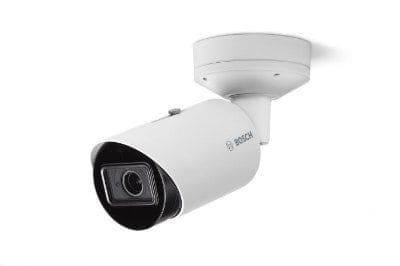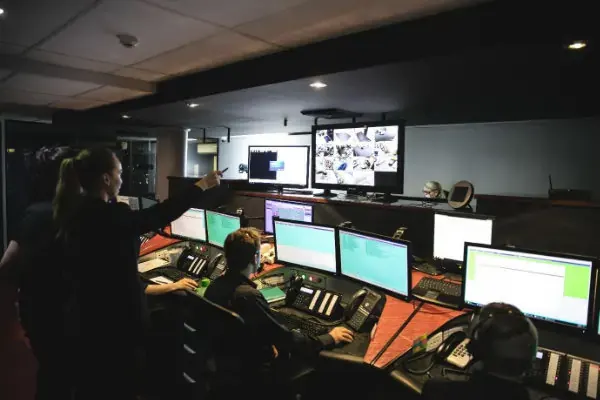What types of security systems do you need for your home or business?
When it comes to choosing what you want in your home or business security system, you can quickly become overwhelmed by the number of different systems available. This article will act as your guidebook for what choices you will need and some of your options for security system components to help protect your property.
Wired or Wireless?
One of your first decisions is whether you want your system to be hardwired or wireless. For decades the choice has been simple as it was only wired systems however in the last decade and a half wireless security cameras and alarms have taken the market by storm and in recent years have become a reliable alternative to a wired securities system.
-
Wired Security Systems:
Wired security systems have stood up to the test of time having been used for decades by businesses and homes big and small. In that time they have been consistently improved year after year to create some of the most extensive security systems out there. Modern wired security systems can have up to 128 cameras off a single recorder and when installed alongside a broader security system can incorporate access controls, window break sensors, door sensors, motion detections and alarms all wired together into a central control hub. As they use a hardwire system to connect the different parts you do not need wifi or an internet connection to use and monitor this system locally keeping your costs down
-
and reducing the risk of cyber attack. However, a downside of a wired security system is the cost of installation unlike a wireless system that you could install yourself a wired system will require a licensed security installer to install as it can require 100s of metres of cables that need to be installed through your home or business to connect up the many arms of a security system and provide optimal coverage. Further to this, if a cable is damaged you lose control and access to any of the security systems further down that line whether it's damaged by an intruder or an animal it can render your system useless. However, to combat this when a system is professionally installed an installer will ensure that cables are either in crawlspaces or walls or ducted to provide an extra level of defence against these attacks. Wired systems are perfect for larger systems with multiple different components or the need for unwavering local monitoring.
-
Wireless Security Systems
A wireless security systems are quickly becoming one of the most common types of systems on the market due to their ease of installation and scalability. These systems use your home or business wifi to transmit information and images from all the different components of the system to a central control panel that collates this information and allows you to access it from either the panel or a mobile device from wherever you have an internet connection. As these systems don't require wires they allow for more flexibility around where they are installed and can allow for DIY systems for smaller businesses or homes. However, a downside of this is that these systems require batteries that either need to be replaced or recharged this can make the upkeep of these systems slightly harder than a wired system that is plug and play as they use mains power. Wireless security systems are perfect for smaller installations or installations where you are slowly adding new features over time and want the flexibility of easily changing this system out yourself or at a lower installation cost.
Once you have decided on whether you want a wireless or wired system it's time to determine what types of sensors you want in your system.

Types of Sensors
This can be a daunting decision as you have a myriad of choices when it comes to choosing what components you want in your business and home security systems.
-
CCTV Cameras
CCTV cameras are the eyes of your system they are the one component of a security system that shows you exactly what is going on at your property as if you were there. This allows you to see what is going on around the clock and record footage of anything that happens on your property so you can better defend yourself if something does happen and have a record to pass on to police or insurers. Security cameras come in a few types:
- Bullet CCTV Cameras:
Bullet CCTV cameras offer long-range focus camera options that can be used for watching gates or doors from a distance. Another benefit of these cameras is their bullet shape makes them a highly visible deterrent for the exterior of your home or business.
- Dome CCTV Cameras:
Dome CCTV cameras are common both indoors and outdoors as they can be installed on the ceiling or the eaves of a home or business. These cameras come with an often tinted dome-shaped cover that blocks the camera from outside viewers so they can't see where the camera is facing.
- Turret CCTV Cameras:
Turret CCTV cameras are similar to a dome camera however they don't have a dome cover letting them offer a clearer image as they don't have a dome that can smudge and affect the image. These cameras come in two types fixed and motorised versions. The fixed version is set and forget where as a motorised version allows for a limited range of panning and zoom to either cover a broader area or get a better image of a person of interest.
- Pan-Tilt-Zoom CCTV Cameras:
These have a similar form factor to a turret camera however they have a nearly full range of motion to cover a broader area. These cameras can be controlled remotely to pan 360° scan up and down to cover a full range. These cameras can also zoom in to provide a clearer image of a person or issue such as a fire or water leak to provide a clever image as to what is happening at your property.
- Bullet CCTV Cameras:
-
Security Sensors
Security sensors are the second part of the backbone of a security system with motion detectors being one of the most popular components for a security system as they help ensure that no one is where they shouldn't be in your business or home. the next most common type of security sensor is a door and or window alarm that activates when a door or window is opened this will alert you if someone has gained access to your property through a window or door when they shouldn't have. On top of these two types of sensors is a plethora of other sensors that help ensure your property isn't breached such as window break sensors and flood light motion sensors are a further level of protection.
Further to these security sensors you can include home or business safety sensors into your security system such as smoke sensors, carbon monoxide sensors and flood sensors. To ensure your property is safe from gas leaks, fires, and floods when you are away.
Access Controls
Access controls include things such as smart locks, door sensors and doorbell cameras. An access control system gives you ultimate control over who goes in and out of your home or business whether it's through biometrics or remote locking and unlocking of doors when a friend needs to grab something from your home while you are away. Modern CCTV cameras also form a key part of an access control system as some modern cameras come with facial recognition to alert you whether a person you know is at your door or if it is an unknown person this reduces the alerts when someone from your home or business gets back or uses the door and putting more emphasis when someone you don't know is there. These systems all combine can give you better control of the comings and goings at your home or business and remotely control the locks on your doors from wherever you get an internet connection or through a fob or biometric system as opposed to keys.
Duress Alarms
Duress alarms act as personal alarms for when your home alarm system doesn't pick up on an intruder when it is turned off cause you are home or you are out and about and something happens. Duress alarms typically come in two forms a keyring or personal device and an alarm control screen in your home. When your duress alarm is activated one of two things generally happens if you have the alarm for medical reasons it will alert your emergency contact or alert the paramedics to your location. The second is the alarm will alert a back-to-base alarm monitoring station that will undergo your preplanned alarm process or alert the police of your location. These alarms are a good fail-safe if your alarms are down for whatever reason or something else has happened letting you discreetly alert the necessary authorities to respond to your location. A duress alarm on your alarm control panel can also be used to activate your alarm system such as flood lights or a siren or flashing light to alert the intruder and scare them away as well as alert neighbours or the public.
Types of Monitoring

There are two types of alarm monitoring; self-monitoring and back-to-base monitoring. Both of these systems provide you with ultimate control over your alarm with the main difference being who monitors the alarm around the clock. A self-monitored system is as it says in the name self-monitored this means when an alarm is triggered it is up to you the monitor to action it by either checking the property yourself or calling the authorities yourself. The downside to this is that you need to be contactable 24/7 365 days a year to respond to an alarm. the upside however is the cost as this type of monitoring costs little to nothing depending on the software you use to monitor. A back-to-base monitored system takes the stress out of it as your alarm is monitored by a specialist security team that will respond to the alarm if it is activated leaving you with little to do apart from answer an initial call confirming the alarm the rest is taken care of by the monitoring company that will follow their procedures or any special procedures you have requested. the downside to this is the cost it will cost more as you are paying for a service however if you aren't always contactable it can very quickly pay for itself.
if you want further guidance around what type of security system is best for you or what things you should include in your system contact the expert team at Alltronic Security and Electrical and we can provide further guidance to help keep your home or business safe.